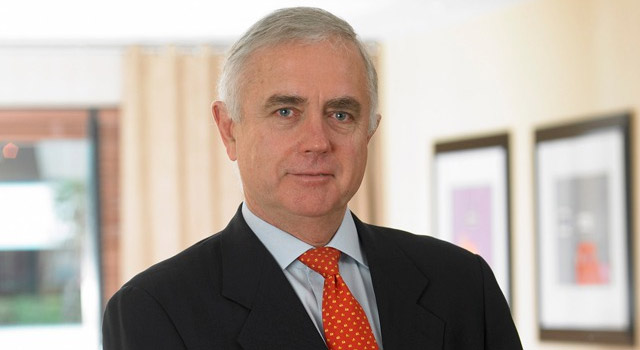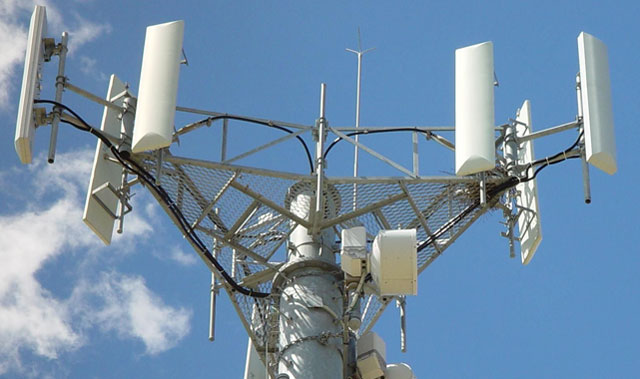
Multisource, backed by former top bankers Paul Harris and Michael Jordaan, plans to capitalise Wireless Business Solutions (WBS), the parent of iBurst and Broadlink, to build a 4G/LTE network that replaces the company’s older iBurst technology and, over time, builds a next-generation mobile telecommunications network with national scope.
That’s the word from Duncan Simpson-Craib, who has been appointed to lead Multisource as CEO and oversee the plans to use WBS’s valuable spectrum assets to build the network.
Multisource recently secured the final approval it needed, from communications regulator Icasa, to buy WBS. It had already secured the green light from the Competition Commission earlier this year.
Simpson-Craib tells TechCentral that WBS’s spectrum — especially its access to the 1,8GHz and 2,6GHz bands — is one of the main reasons that Multisource’s shareholders saw it as an attractive acquisition opportunity. The spectrum, he says, has not been utilised to its full potential.
“If you look at what is happening in the world of data — where the incumbent operators’ growth in data year on year is enormous — we see a big opportunity to leverage that spectrum and roll out a next-generation data network,” he says.
“How that happens, I really don’t know as yet,” he adds. “But one of the exciting things is we don’t have legacy 2G and 3G networks to maintain. We can go straight to a full-blown, next-generation LTE network.”
Although iBurst has “had some issues in the past”, it has built “a nice network” that still has about 60 000 clients, Simpson-Craib says.
“You could question if the iBurst technology was ever going to work — but hindsight is a wonderful thing. And at Broadlink, under trying circumstances, Mike Brown [the MD] has built up a nice business with a good brand in the market and there is quite a lot that we can do with that. It’s an exciting sector with an opportunity to get involved.”
iBurst clients will be moved off the old iBurst technology and onto LTE, though Simpson-Craib is reluctant to provide a timeframe for this given that a roadmap still needs to be drawn up. “We need to start putting a strategy in place about what we do with the iBurst subscribers,” he says.
He downplays a suggestion that buying WBS is a short-term play, done simply to flip it for a profit to one of the mobile operators looking for new spectrum assets.
“No, not at all,” Simpson-Craib says. “If you know anything about Paul Harris, you’ll know he has a disruptive streak in him. We did not buy this to flip it to anybody. We bought this to try and build a business. We really would like to roll out a next-generation network and we’re not naïve about the fact that it will cost a lot of money.”

He says it’s too early to say how the business will raise the capital needed to deploy the planned LTE network, though he says the shareholders have the ability to inject money if they decide to use equity rather than raising debt.
“We have enough money to run the business, which is well capitalised. For the medium term, we are fine,” he says.
“We are also not going to go and roll out a national network starting tomorrow. We need to understand a bit more about the business and exactly what it is we want to do going forward.
“There’s a whole heap of extremely bright technical people with amazing ideas. At the end of the day, my job is to take those amazing ideas, make them a reality and execute on them.”
Simpson-Craib says it is not Multisource’s intention to use WBS to build the next Vodacom or MTN.
“But we truly believe that if we can get to this next-generation network, and get the network up and running, we will be able to offer services into the market that don’t necessarily compete head-on with the rest. They’re obviously moving in that direction, too, but I don’t want 26m subscribers, I really don’t. We also don’t want to make the statement that we’re cherry-picking the top. We just want to offer different services that appeal to slightly different markets.”
Eventually, he says the plan is to build a full-service mobile operator, which will mean offering coverage nationwide. “How we get to that point, we are not entirely sure at the moment. But certainly in the short term we want to start offering LTE-type services. We have 300-400 base stations, and that’s a good place to start.” — © 2015 NewsCentral Media




